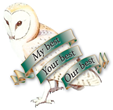Current Learning

Our ambitious 7-year curriculum is based on the National Curriculum and is designed to develop and embed our vision and values. Our curriculum is organised into the school terms with units of work, genres and books chosen to suit the time of year and, where relevant, the current themes.
Please see the links below for curriculum overviews for the current learning in your child's year group.
Reading at Standens Barn Primary School
Our reading curriculum is based on the learning statements from the National Curriculum which are organised into the DERIC components (Decode, Explain, Retrieve and Infer). We use the Read Write Inc programme to deliver consistent and effective daily phonics lessons to children in Reception and Year 1. Please visit https://www.ruthmiskin.com/parents/ for videos on how you can support this at home.
In Years 2 and above, the children have daily whole class reading sessions. We ensure we cover all the domains of reading relevant to each academic year group and also ensure progression in learning across terms, years and key stages. We encourage and promote a love of reading amongst our children through their own individual reading book, the main school library, the BEST books in our classroom libraries and our class readers. We also organise many reading events to prioritise reading and share an enjoyment of story, poetry and literature such as Story advent books and Big Barn Book Swap.
Writing Curriculum at Standens Barn Primary School
At Standens Barn, we teach our children how to use written English language effectively for a variety of purposes. We want children to form letters clearly and neatly while developing their own style of handwriting. Pupils will learn the basics on sentence construction to accurately and coherently express themselves and soon develop understanding of many more complex grammatical devices, which develops their skills of explanation, persuasion, description, instruction and narration. Through phonics (Read Write Inc) and spelling sessions, children will write accurately and know when they need support. We want children to write ambitiously by including ideas, features and vocabulary that transports the reader to new worlds. In summary, we want children to be able to use writing as a tool for enjoyment, self-expression, career development, friendship and as a vehicle to demonstrate their ability and knowledge across many areas of learning.
Maths Curriculum at Standens Barn Primary School
Our maths teaching is based on the White Rose scheme of work and is underpinned by the bar modelling theory of mathematical teaching, which is supported by My Maths. There is a strong emphasis on developing number work and fluency alongside problem-solving and relational understanding. This ensures that children quickly develop their number bonds and times tables knowledge so that they can apply this to mathematical understanding.
- ENGLISH
- MATHEMATICS
- SCIENCE
- ART and DESIGN
- COMPUTING
- DESIGN and TECHNOLOGY
- GEOGRAPHY
- HISTORY
- MODERN LANGUAGES (French)
- MUSIC
- PHYSICAL EDUCATION
- PERSONAL, SOCIAL, HEALTH and ECONOMIC EDUCATION (PSHE)
- RELATIONSHIPS & SEX EDUCATION (RSE)
- RELIGIOUS EDUCATION
The National Curriculum links
Remote education provision: information for parents of children at Standens Barn Primary School.
This information is intended to provide clarity and transparency to pupils and parents or carers about what to expect from remote education if local restrictions require entire cohorts or individuals to remain at home.
The remote curriculum: what is taught to pupils at home
If necessary, remote learning for our children will be sent via an email or Google Classroom ready for the school day. Resources will be available via email or Google Classroom.
Where possible, children will be following the same curriculum as they would be doing in school with adaptations where necessary to aid delivery and expectations to ensure the learning is progressive.
We expect that remote education (including remote teaching and independent work) will take pupils broadly the following number of hours each day:
- KS1 - 3 hours per day
- KS2 – 4 hours per day
We recognise that some pupils may not have suitable online access at home. We take the following approaches to support those pupils to access remote education:
- Print materials and plan for delivery or collection
- Possible loan of equipment as available
For whole cohort closures, live teaching will become available if staff are well enough to continue teaching. This would include:
- Live registrations x 2 daily
- Live group sessions as required by class inc: guided reading, maths and English support.
If there is no pupil engagement on Goodle Classroom, through email or the submission of tasks for three consecutive days parents will be contacted.
Feedback can take many forms and may not always mean extensive written comments for individual children. For example, whole-class feedback or quizzes marked automatically via digital platforms are also valid and effective methods, amongst many others. Our approach to feeding back on pupil work is as follows:
- Marking will be inline with that of the class and include self-assessment opportunities
- Photographic/scanned evidence including additional work children have completed
- Virtual via Google Classroom
Children with additional needs
We recognise that some pupils with special educational needs and disabilities (SEND), fro example, may not be able to access remote education without support from adults at home. We acknowledge the difficulties this may place on families, and we will work with parents and carers to support those pupils in the following ways:
- Adapted work
- Additional 1:1 sessions with support staff
- Shorter tasks adapted to suit individuals


